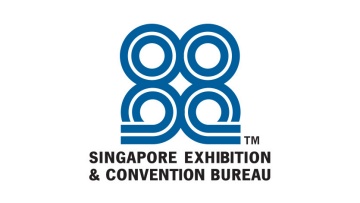
Over the course of the past year, thousands of conference centres have been forced to close their doors, with physical events cancelled in their droves and executives’ busy travel schedules put on hold. While some major events were postponed and even cancelled, many others took the decision to go virtual.
This shift hasn’t proven as damaging as it might have done in the past. With video conferencing tools like Zoom and Google Meet quickly becoming part of our daily working lives, speakers have still been able to reach an audience, and conferences have still been able to take place.
However, purely virtual events struggle to capture quite the same experience or value of actually being there. Many of the business benefits associated with conferences come not from the speakers and sessions themselves, but from what is going on around them.
There is less scope to replicate the mingling in the break room – the chance meeting with another delegate that leads to a fertile exchange of ideas, or the opportunity to dazzle potential customers. You can still create connections, but you can’t truly simulate the buzz that arises when like-minded people get together.
As a result, many businesses and individuals are eagerly awaiting the return of large-scale, in-person events. The World Economic Forum in Singapore, taking place in August, will be an early highlight in the events calendar – and an opportunity to demonstrate what a return to physical events might look like to a global audience.
The new normal
One thing is clear for the events industry: it will not entail jumping right back into pre-Covid norms. The emphasis will be on delivering events as safely as possible, which means adhering to strict social distancing and hygiene measures. For the time being at least, attendees will need to wear masks at all times, as well as undergoing a robust testing regimen and using Singapore’s TraceTogether technology.
Events organisers will, for their part, need to get creative. Far from just delivering a stripped-down version of a pre-Covid event, they need to be looking to utilise an array of technological platforms in a bid to create something just as dynamic.
“Hybrid events are expected to be the norm in the new Covid-19 environment, with a blend of virtual and physical elements, while retaining the ‘live’ aspect that fulfils the need to connect and network,” says Carrie Kwik, Singapore Tourism Board’s (STB) executive director, Europe.” The integration of technology into the visitor experience, such as digital guides and contactless registration, are also expected to become mainstream. Therefore, it is critical for our industry to pivot and adapt to new event formats and business models.”
As a global business destination with a thriving tech scene, Singapore is well positioned to pioneer these new models. The city has variously been called ‘the tech capital of Asia’ and ‘Asia’s answer to Silicon Valley’, given its preponderance of tech companies, its pro-business government, and its many financial incentives for enterprise.
Leverage tech
According to Singapore’s Economic Development Board, the city state plays host to 59% of the Asian regional headquarters of multinational tech companies. It is a storied list, which includes the likes of Facebook, Visa and Google, as well as Chinese companies like Alibaba and Tencent. The city state is also home to more than 4,000 tech start-ups, employing nearly 22,000 people.

Already, the MICE sector is serving as a showcase for the depth of tech talent present within Singapore. This was evident at the height of the crisis last year, when the Singapore-based tech company GlobalSign.in launched a new product for the meetings and events industry.
“[It addresses] clients’ needs to go fully virtual, providing a ‘digital venue’ where organisers can brand and build their own online engagement experiences for their virtual events,” says Kwik.
Then, in July, STB hosted a Digital Marketplace for commercially ready technologies that can be used to create low-touch experiences and hybrid meetings. A total of 24 tech companies took part, including Delight Lights, which provides an AI-powered, multilingual voice assistant for apps and chatbots.
New realities
Perhaps most excitingly, the Marina Bay Sands Expo and Convention Centre – Singapore’s largest meeting space – has launched a hybrid broadcast studio, with virtual reality, augmented reality and extended reality embedded in its functions. It has hosted a number of hybrid MICE events, in which the physical and digital work together.
“If a speaker can’t travel to Singapore, the venue will work with tech partners around the world to beam a hologram on the stage live, alongside on-site speakers,” explains Dr Edward Koh, executive director of conventions, meetings and incentive travel at STB. “The venue will use this studio as the central hub for event planners looking to produce hybrid meetings in the new Covid-19 environment.”
Organisers also need to consider a number of practical concerns – not least technology to facilitate crowd monitoring. Attendees could be given an RFID token that blinks red when a person breaches safe social distancing guidelines, while movement tracking could take place via beacon or Bluetooth technology.
STB’s Event Resilience Roadmap recommends that no-touch technology be installed in the toilets, and hand-driers eliminated – and that organisers consider using constant temperature monitoring tokens and AI-based temperature scanners. Robotics can also be harnessed to disinfect surfaces and enforce hygiene and distancing rules.
“We have piloted a number of enablers at events including temperature scanning, and contactless badge printing to reduce contact between attendees and registration staff,” says Kwik. “We have also trialled a web portal that enables MICE delegates to view their pre-arrival ‘to-do’ list, including pre-event testing and cohort management for Safe Itinerary activities.”
Pilot schemes
These features are being tested at events such as TravelRevive, which took place in November, and Geo Connect Asia 2021, scheduled for later in March. This allows STB to study the data and progressively refine safe management practices for MICE events.

“GCA 2021, for example, will pilot creative solutions to enhance health and safety for delegates, as well as digital enablers to allow participants a seamless experience in the current Covid-19 environment,” says Kwik.
Although Covid restrictions won’t be in place forever, many technological changes (particularly around the hybridisation of meetings) will persist long after the pandemic recedes. For this reason, STB is developing a suite of initiatives to help tourism businesses in Singapore build the capabilities they need to succeed in the digital age.
“We encourage our MICE industry partners to use this time to rethink event formats, explore new partnerships, and upskill,” says Kwik. “As digital/virtual becomes a key feature of many events in future, a successful venue may be one that can adapt its physical spaces and technological bandwidth to embrace this feature.”



